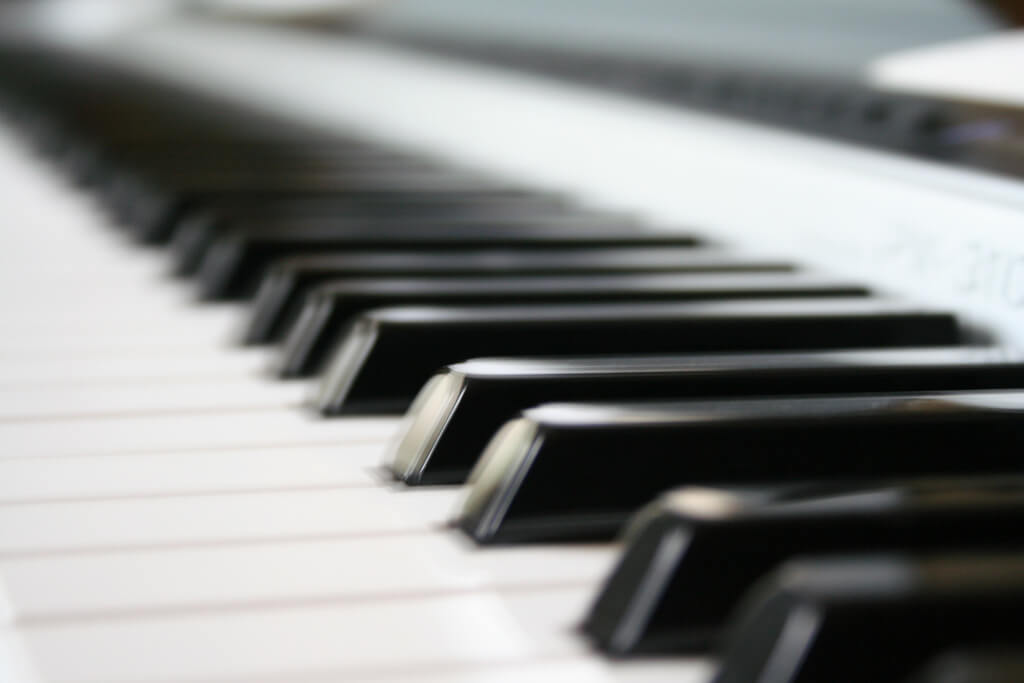Why Rachmaninov played Concert №3 faster than others

Photo by Will Powell CC BY
Sergey Vasilyevich Rakhmaninov - one of the largest musicians of the turn of the XIX-XX centuries. His art is distinguished by sensuous truthfulness, sincerity, and the emotional fullness of artistic execution. He followed the best traditions of Russian musical classics - one can say that Rachmaninov was a heartfelt singer of Russian nature.
')
Rachmaninov grew up in a musical family. His father, Vasily Arkadyevich Rakhmaninov, was a man of exceptional musical talent, and his mother acted as his piano teacher, however, according to the future outstanding composer, the lessons brought him "great displeasure." Despite this, by the age of four he was free to play four hands with his grandfather, Arkady Alexandrovich.
The one who heard Rachmaninov playing his works could not help but notice that the pace of his playing is much higher than that of other musicians. Undoubtedly, it is possible to interpret the work in different ways, but the fact that most of the performers play Rachmaninov’s music much more slowly than the composer himself is surprising .
Charlotte Lang, a pianist and singer, believes that the reason for this is “Rachmaninov’s enormous hands.”
“He could reach up to 13 keys with one hand (the whole octave plus another fifth). If nature has not endowed the musician with large hands, then he has to play slowly to accurately hit the keys, because the arpeggios in the works of Rachmaninoff are simply inhuman, - explains Charlotte. “But you shouldn’t discount the fact that a quick game was not particularly difficult for Sergey Vasilyevich, because he was an incredibly skillful pianist.”
Stefano Degano, a bachelor of music, in turn, notes that Rachmaninov’s playing speed is in no way connected with his level of preparation: “Any professional musician will be able to play this piece as quickly or even faster than Rachmaninoff.”
The answer to this question may come as a surprise to someone: Rachmaninov played faster and cut the score so that his works fit the format of records with a rotation speed of 78 rpm. Of course, he cut even larger works so that it was more convenient for them to play on performances, but not in this case.
“As I recall, Rachmaninov’s early recordings were made on Edison Diamond discs, which you can see in the photo below,” says Alan Morrison. “They can be heard only on special phonographs rotating plates with a frequency of 80 rpm.”
Rachmaninov also recorded his performances under the label Victor, before and after RCA bought out the Victor Talking Machine. Victor's disks just contributed to the spread of 78 rpm.
This is what they write about on the site Classical.net:
“It is widely known that Rakhmaninov sometimes shortened his works during performances, for example, Symphony No. 2. It was also necessary to meet the requirements of the standard plates with a rotation speed of 78 rpm. At that time, this practice was widespread. However, today they practically do not do that ”
It is worth noting that Stephen Hough and Valentina Lisitsa recently recorded Rachmaninoff Concert No. 3, performing it at the speed with which the composer himself played. This proves that there are musicians who can play Rachmaninov’s works very quickly.
Allen Yuan (Allen Yuan) also confirms that Rachmaninoff really omitted fragments of his works. For example, one of these moments can be heard in this video (5:25 mark).
“True, I can't say for sure why he played Concert No. 3 so quickly,” replies Allen. - When I addressed this question to my teacher, he replied that it was this record that was made after a long tour. Perhaps he was just tired of playing the same thing. ”
Without a doubt, Rachmaninoff was one of the greatest virtuosos of his time. The name of Rachmaninov as a pianist ranks with the names of F. Liszt and A. G. Rubinshtein.
“But as a person who spends a lot of time in concert halls, I can say with confidence that the reason why professional pianists do not play works quickly is in no way connected with their level of preparation,” concludes Allen.
PS More materials on the topic of music and audio - in our " World Hi-Fi ".
Source: https://habr.com/ru/post/391683/
All Articles